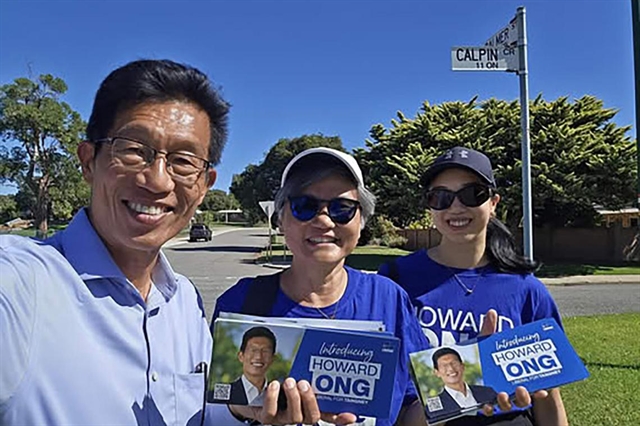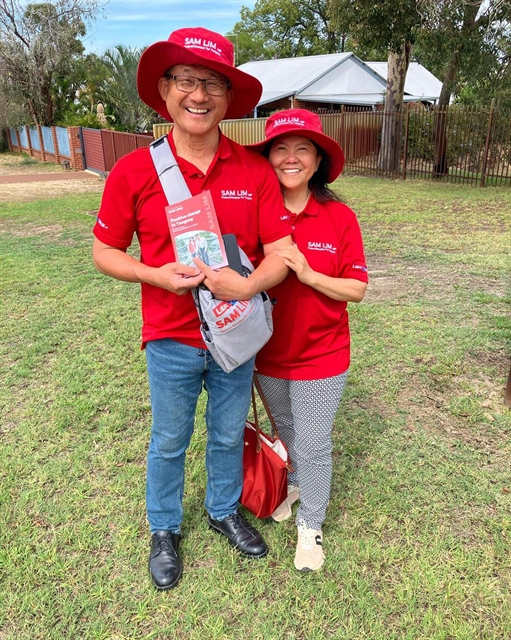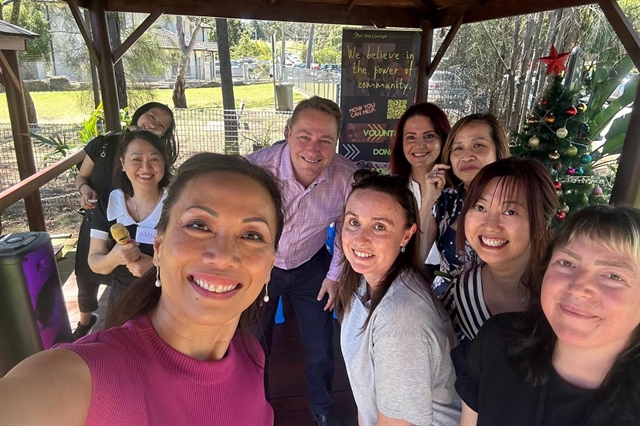 World
World

SYDNEY – One of the most closely watched races in Australia’s election on May 3 will be in Sydney, where Labor candidate Tu Le, a lawyer, is trying to win the seat of Fowler from independent MP Dai Le, a former journalist.
It is no surprise that both candidates share Vietnamese heritage. According to the last census in 2021, 19 per cent of the seat’s 173,000 residents have Vietnamese ancestry, making them the largest ethnic group, followed by Chinese Australians (13 per cent), and those of Australian ancestry (9 per cent).
Yet, at the last election in May 2022, Labor, which had held the seat since it was founded in 1984, passed over Ms Tu Le – the expected candidate – and selected an American-born Australian candidate, Ms Kristina Keneally, a former New South Wales premier.
Ms Keneally, who did not live in the area, lost to Ms Dai Le, who said the attempt to foist Ms Keneally on the electorate was arrogant and a “slap in the face” to locals.
Labor appears to have learnt its lesson. Ms Tu Le is now contesting the seat and welcomed Prime Minister Anthony Albanese to the electorate on April 4. Standing alongside her, he distanced himself from his party’s decision to overlook her in 2022.
“I encouraged her to be the candidate and I think she’ll make a fantastic Member for Fowler,” he told reporters.
Both sides of the political aisle recognise that their candidates – and the make-up of the country’s Parliament – should reflect the growing Asian-Australian population. More than 17 per cent of the country’s population of 27 million are Asian-Australian. Currently, 12 of the 227 MPs – or 5 per cent – are Asian-Australian.
Ahead of the May election, a series of Asian-Australian candidates have emerged in key races as Labor and the Liberal-National Coalition gradually respond to the changing demographics.
In the seat of Tangney in Perth, Mr Howard Ong, who was born in Singapore and is the brother of Singapore Health Minister Ong Ye Kung, is standing as the Liberal candidate against the sitting Labor MP, the Malaysian-born Mr Sam Lim.
Mr Howard Ong, who moved to Australia to study at Curtin University more than 28 years ago before meeting his future wife and starting a local IT business, has a strong chance of winning the seat – which has traditionally been a safe Liberal electorate and is held by Labor with a margin of less than 3 per cent at the last election.
Mr Ong, who confirmed the identity of his brother to The Straits Times, said in a statement: “Our family has always had a strong commitment to serving the community, and I have carried that commitment with me.”
He added: “I am working hard to earn the trust of my local community here in Australia as the Liberal candidate for Tangney.”

|
| Mr Howard Ong has a strong chance of winning the seat of Tangney in Perth. PHOTO: HOWARD4TANGNEY/FACEBOOK/THE STRAITS TIMES |
The proportion of Asian-Australians in Parliament has been increasing, but remains low.
Mr Osmond Chiu, a research fellow at think-tank Per Capita, told ST that the proportion of Asian-Australians could rise after the coming election, noting that several Asian-Australians are standing in seats they are likely to win.
Asian-Australians have become increasingly prominent in politics. Following the 2022 election, Ms Penny Wong, who was born in Malaysia, became Australia’s first Asian-Australian foreign minister.
Reflecting on her heritage in a speech at the Australian National University in August 2024, she said she experienced racism and prejudice when she was young and wanted to “work for change”.
A senator since 2001, Ms Wong said that in her early days as an MP, it felt at times “like the only other Asian faces I would see in Parliament House were the cleaners and a woman who worked in the library”.
“I am deeply gratified by the trend we see today, including more second-generation Asian-Australians entering politics,” she said. “A democratic country needs to be able to see itself in its leaders.”

|
| Australian Labor Party politician Sam Lim campaigning with his wife Chew Yong on April 2. Mr Lim is defending his seat of Tangney in Perth. PHOTO: SAM LIM/FACEBOOK/THE STRAITS TIMES |
An expert on Chinese-Australian communities and media, Professor Sun Wanning from the University of Technology Sydney, told ST that one reason for the low representation of Asian-Australians in politics is that “in Chinese societies, going into politics is not the No. 1 choice of career”.
She said first-generation migrants also faced language and social barriers. “Being able to project a relatable image to the wider Australian public is hard for someone whose English is not very good and who doesn’t have extensive local social networks,” she noted.
She added that some Chinese-Australians may be put off by the intense scrutiny that some candidates have faced in the media over perceived links to corrupt Chinese business figures or the Communist Party of China.
Still, Labor and the opposition Liberal-National coalition have increasingly turned to Asian-Australian candidates to stand in electorates with a high proportion of Asian-Australian voters.
In the seat of Bennelong in Sydney, where 29 per cent of residents are Chinese-Australian, Mr Scott Yung, a Chinese-Australian Liberal, is taking on sitting Labor MP Jerome Laxale.
In Reid, where 23 per cent of residents are Chinese-Australian, an Asian-Australian Liberal candidate, Mr Grange Chung, is trying to defeat Ms Sally Sitou, a Chinese-Lao Australian.
In the Melbourne seat of Menzies, where 27 per cent of residents are Chinese-Australian, Mr Gabriel Ng, whose father moved to Australia from Singapore, is eyeing the seat now held by Liberal MP Keith Wolahan.
But a candidate’s ancestry is no guarantee of electoral success. A recent survey of more than 3,000 people by Sydney Today, a Chinese-language media outlet, found that 51 per cent would support a candidate on the basis of the person’s Chinese or Asian appearance, and 49 per cent would not.
In Fowler, Ms Dai Le told Sky News on April 3 that the Labor Party had been overly focused on targeting voters in the local Vietnamese community. “I think Labor was tokenistic in its decision to pre-select someone with a similar name to me, and that’s all she has,” she said.

|
| Independent MP Dai Le (foreground, left) said the Labor Party had been overly focused on targeting voters in the local Vietnamese community. PHOTO: DAI LE/FACEBOOK/THE STRAITS TIMES |
Ms Tu Le said she wants to fight for the interests of the entire community of Fowler, especially on issues like healthcare and childcare.
Prof Sun said it is important to have a greater representation of Asian-Australians in Parliament “so that their voices are adequately heard and they do not feel voiceless and disempowered”.
She added: “Having more people in Parliament who look like them and are willing to speak for them is empowering.” THE STRAITS TIMES/ANN




